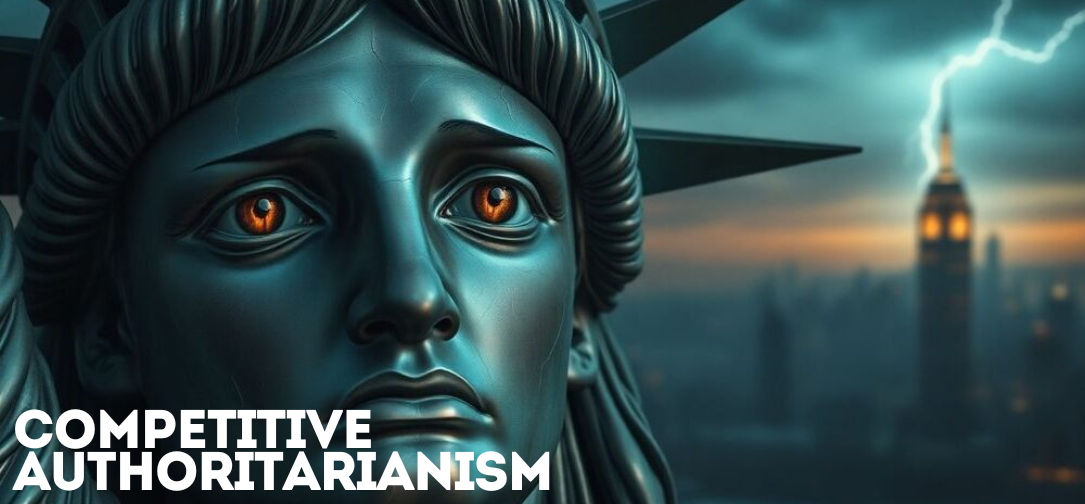Government
Experts Warn of U.S. Slide Towards Authoritarianism Under Trump Administration

The Trump administration faces increasing scrutiny and criticism from political scientists and experts who warn of a concerning slide towards authoritarianism. Actions such as undermining democratic institutions, challenging judicial independence, and suppressing dissent have raised alarms about the future of American democracy.
Mounting Concerns Over Democratic Erosion
Experts are sounding the alarm regarding the Trump administration’s actions, which are eroding democratic norms and institutions. Many political scientists, particularly those specializing in democracy and authoritarianism, express deep concern over the concerted efforts to consolidate executive power and undermine checks and balances. This sentiment is echoed by a survey of over 500 political scientists, where the vast majority believe the U.S. is rapidly moving from a liberal democracy towards some form of authoritarianism.
Defining “Competitive Authoritarianism”
When scholars refer to “authoritarianism” in the context of the U.S., they often mean “competitive authoritarianism.” This system, seen in countries like Hungary and Turkey, involves a leader coming to power democratically but then systematically dismantling the system of checks and balances. Key characteristics include:
- Filling civil service and key appointments (prosecutor’s office, judiciary) with loyalists.
- Attacking independent media, universities, and non-governmental organizations.
- Tilting the electoral playing field in favour of the ruling party.
While elections may still occur, they are no longer considered free and fair.
Specific Actions Raising Red Flags
Critics point to several specific actions by the Trump administration as evidence of authoritarian tendencies:
- Undermining the Judiciary: Defying court orders, labelling judges as “crooked” or “radical left lunatics,” and suggesting judges should be “impeached” for unfavourable rulings.
- Targeting Media: Investigating major broadcast outlets (excluding Fox News), questioning editing practices, and ending grants to public and international news organizations like PBS, NPR, and Voice of America.
- Suppressing Dissent: Detaining individuals for incomplete visas or political speech, and exploiting the power of “sadistic spectacle” to desensitise the public to crackdowns.
- Consolidating Power: Pardoning January 6 attackers, placing loyalists in key positions within the FBI and military, and purging the justice department.
- Influencing Education: Withholding or threatening to withhold funds from universities over perceived issues.
Key Takeaways
- A significant majority of political scientists believe the U.S. is sliding towards authoritarianism.
- The term “competitive authoritarianism” describes a system where democratic processes are eroded from within.
- Actions against the judiciary, media, and civil liberties are cited as primary concerns.
- Despite the alarms, some scholars believe the U.S. system has resilience, particularly through the lower courts.
- The relative lack of strong resistance from opposition parties and the public’s normalization of these actions are also noted as concerning factors.
Sources
-

 Press Release4 days ago
Press Release4 days agoClinical Trials Market Set for Robust Growth, Driven by Drug Development Surge and Digital Innovation
-

 Press Release5 days ago
Press Release5 days agoFill-Finish Pharmaceutical Contract Manufacturing Market Expected to Flourish Amid Biopharmaceutical Boom and Global Outsourcing Trend by 2035
-

 Business6 days ago
Business6 days agoHow Managed IT Solutions Help Small Teams Compete at Enterprise Scale
-

 Press Release5 days ago
Press Release5 days agoGreen Bio Chemicals Market Poised for Sustainable Growth amidst Global Shift to Eco-Friendly Alternatives by 2035
-

 Press Release5 days ago
Press Release5 days agoIndustrial Boiler Market Expected to Surpass USD 24.4 Billion by 2035 Amid Growing Demand for Energy Efficiency and Industrialization
-

 Press Release5 days ago
Press Release5 days agoPreventive Vaccines Market to Witness Strong Growth by 2035
-

 Press Release5 days ago
Press Release5 days agoPet Food Nutraceutical Market Set for Robust Expansion Amid Rising Demand for Pet Wellness by 2035
-

 Press Release4 days ago
Press Release4 days agoWaterproof Structural Adhesives Market: A Comprehensive Study Towards USD 10.3 Billion in 2035










